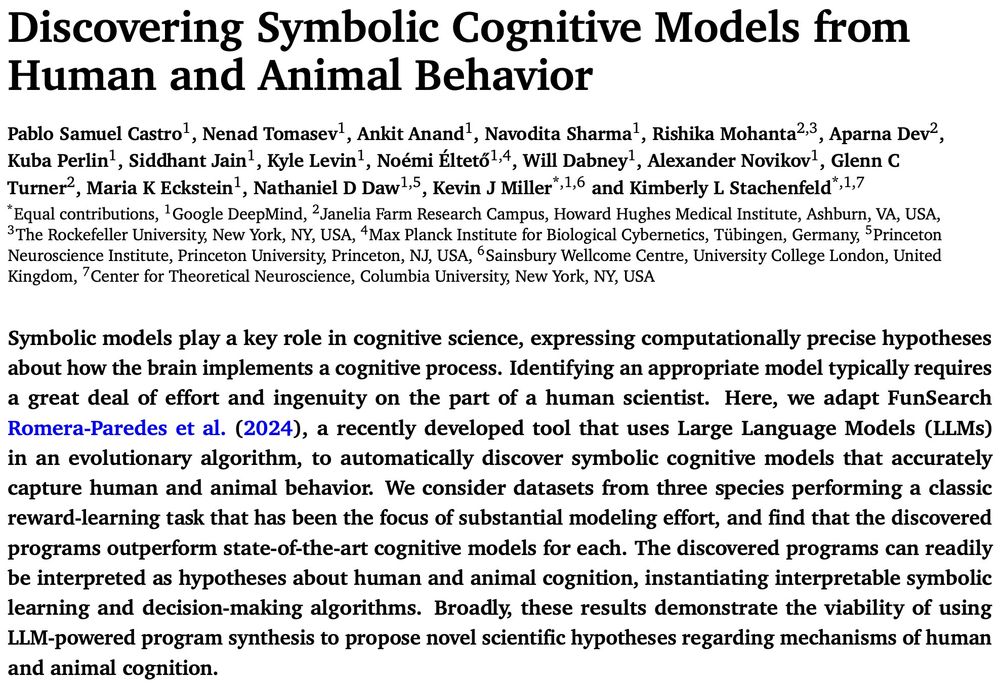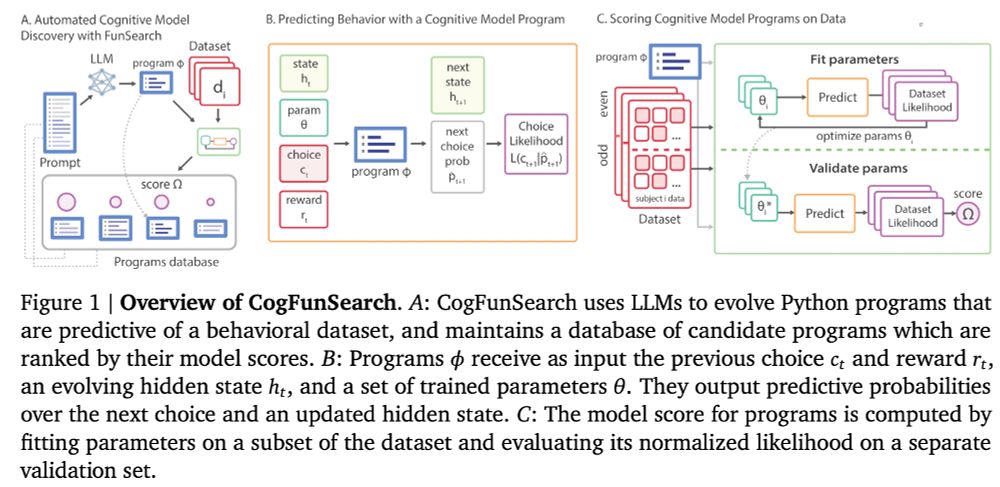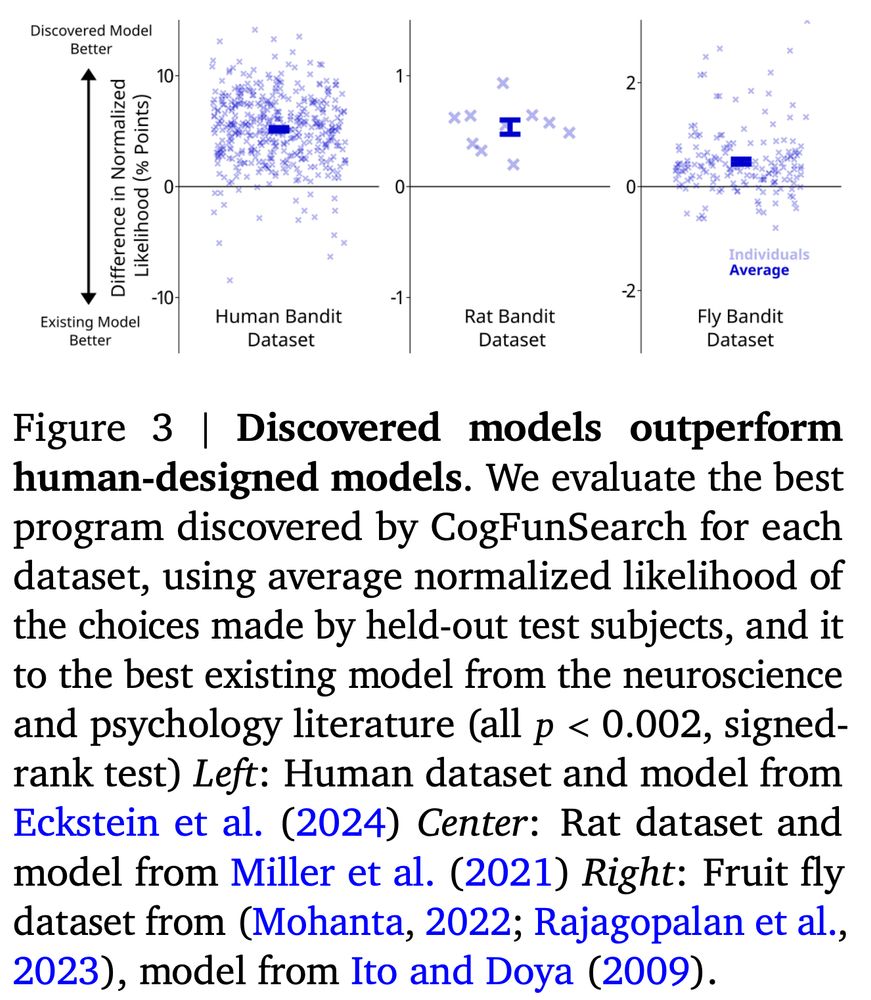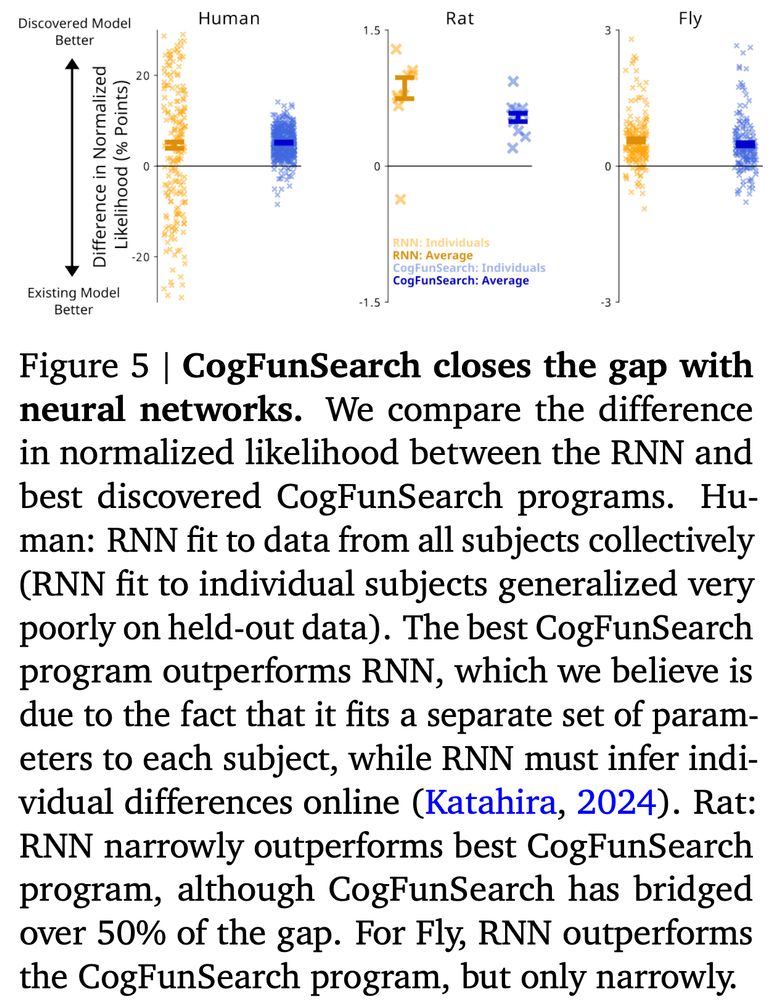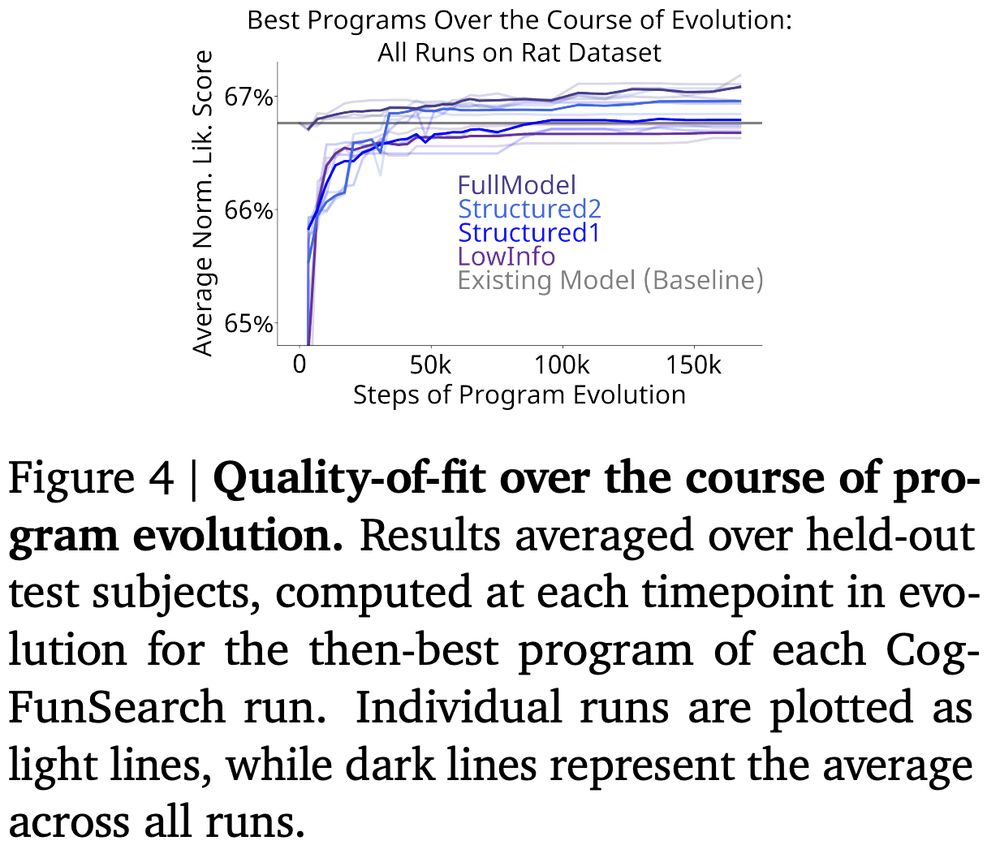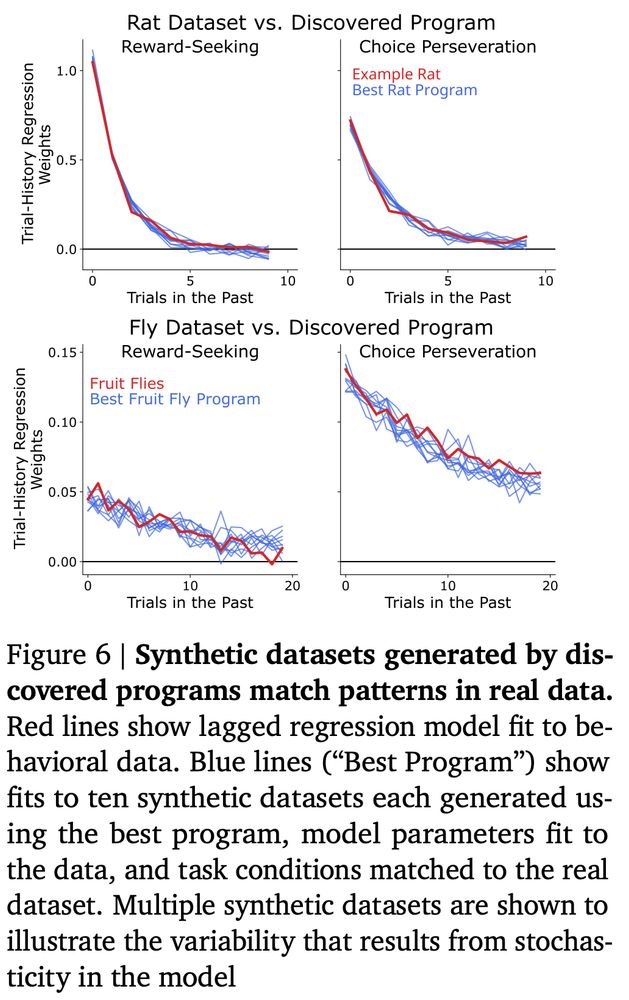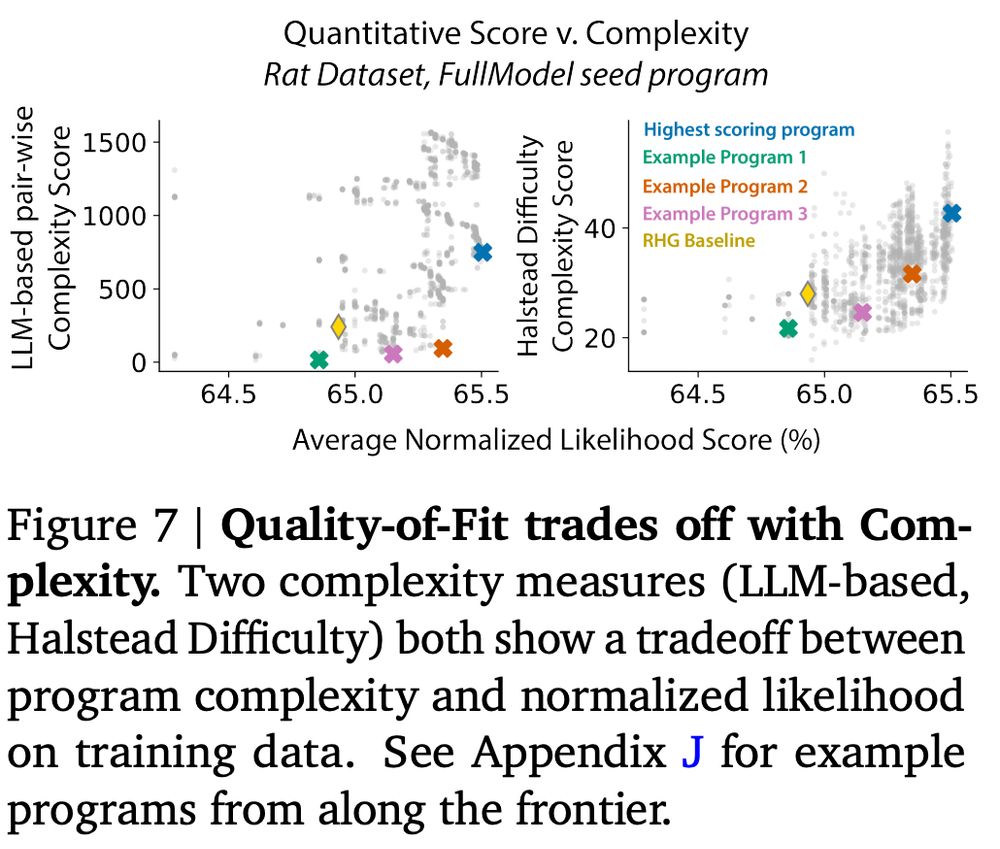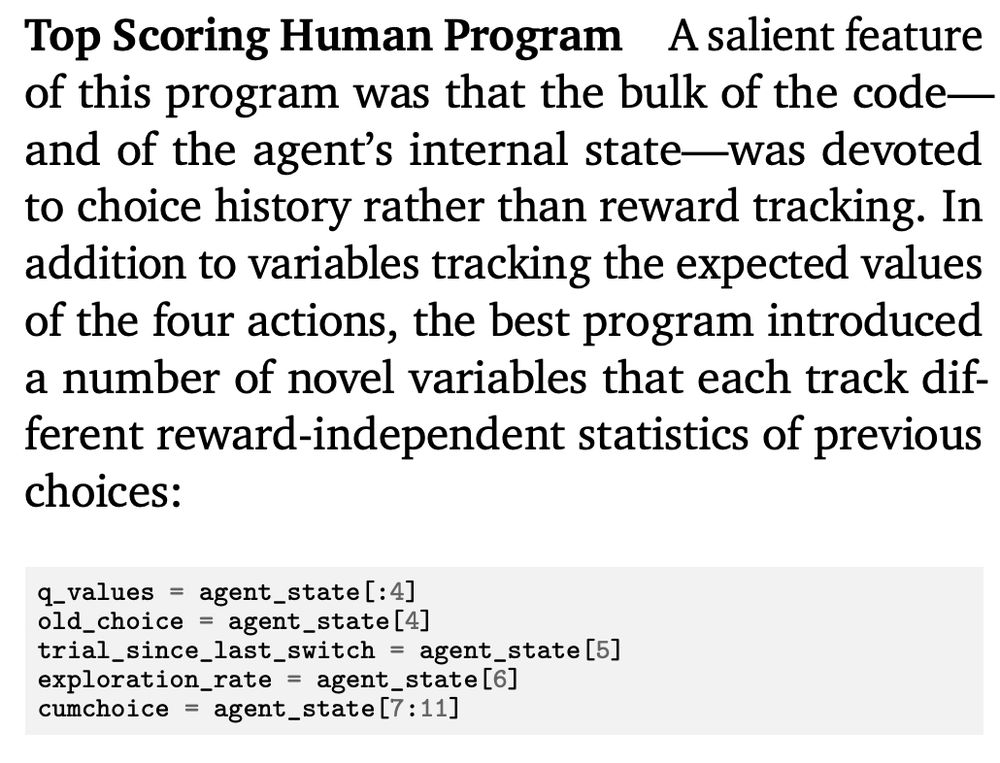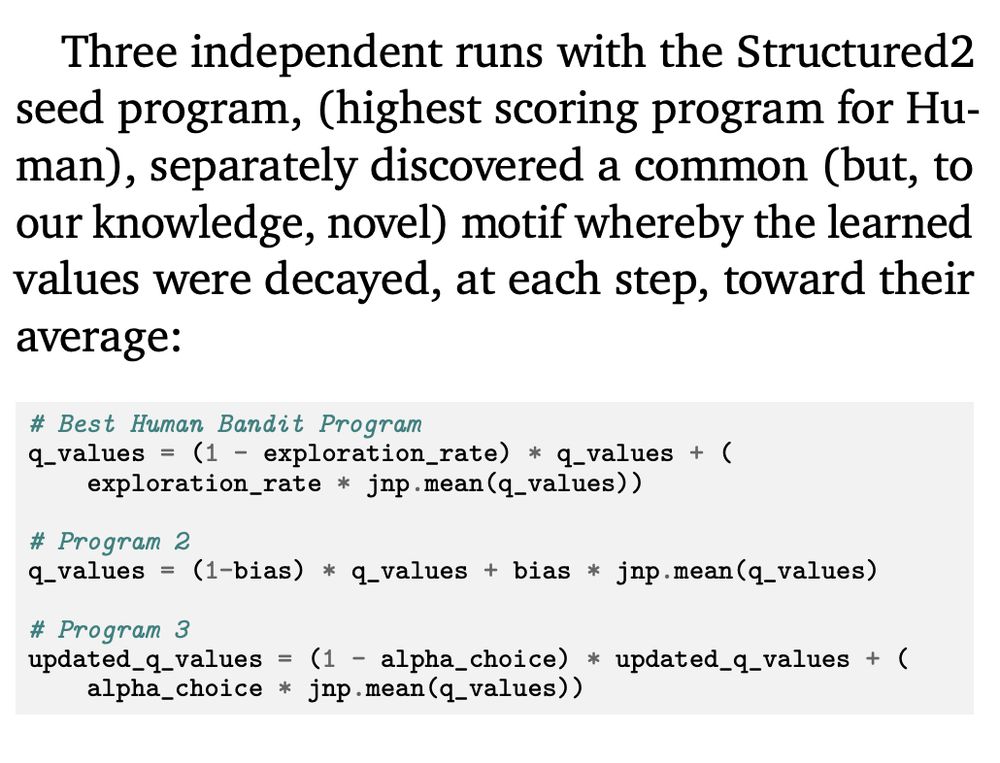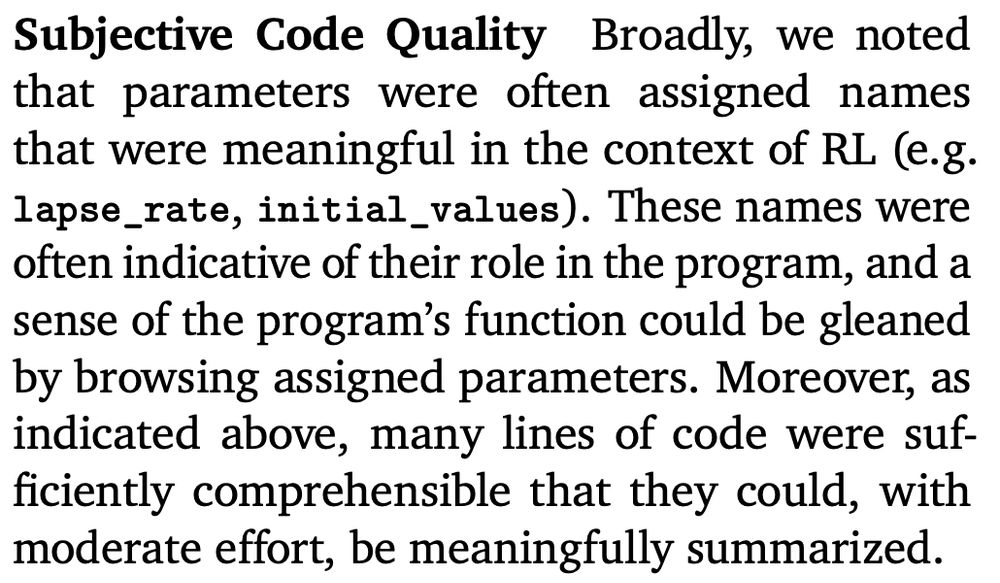Can LLMs be used to discover interpretable models of human and animal behavior?🤔
Turns out: yes!
Thrilled to share our latest preprint where we used FunSearch to automatically discover symbolic cognitive models of behavior.
1/12
The fields of neuroscience & psychology use cognitive models to build understanding of the cognitive processes underlying human/animal behavior.
These models have historically been built "by hand", often taking multiple years to refine.
We took a data-first approach...
2/12
We used 3 existing datasets of humans, rats, and fruit flies performing bandit tasks in a sequence of trials. these datasets allow us to verify the accuracy of our models on both aggregate, and per-subject levels.
each dataset has an existing state-of-the-art baseline model.
3/12
FunSearch is an optimization process that uses LLMs to evolve Python programs. we adapted it to our use-case to evolve parameterized symbolic cognitive models using a bi-level optimization: each program's params are fit on the training data for evaluation.
4/12
After running this process, we evaluated the best programs discovered and found they are more accurate than all existing baselines (left plot). They are also on par with a fully-trained RNN, which serve as a soft upper-bound, sacrificing interpretability for accuracy.
5/12
Even though there is a fair bit of variability in the programs generated, the accuracy obtained is quite consistent across seeds, as seen in the plot below.
6/12
Feb 10, 2025 12:21A really cool outcome of this is that we can use our discovered programs to generate synthetic data which reproduces the scientifically important aspects of the real underlying data.
7/12
We also analyzed the interpretability-accuracy tradeoff of our generated programs, and found a form of "efficient frontier". Although we selected our final programs mostly on accuracy, researchers can examine a diversity of programs along this frontier.
8/12
Although optimizing for accuracy, our discovered models are interpretable! We devote a full section to this analysis, but I include some samples here which demonstrate some of our findings.
9/12
Lots more details, analyses, and results in the paper, which I encourage you to check out!
www.biorxiv.org/content/10.1...
10/12

Discovering Symbolic Cognitive Models from Human and Animal Behavior
Symbolic models play a key role in cognitive science, expressing computationally precise hypotheses about how the brain implements a cognitive process. Identifying an appropriate model typically requi...
Last August I decided to jump on this new project, totally different from what I normally do. It's been a blast working with such fantastic collaborators, and I've felt like a PhD student again, having stepped into a new field!
Really looking forward to the next few months!
11/12
Shout out to some of my (taggeable) collaborators
@nenadtomasev.bsky.social @nathanieldaw.bsky.social @noemielteto.bsky.social , and in particular kevin and
@neurokim.bsky.social from whom i've learnt so much!
💙
12/12
More tagged collaborators!
bsky.app/profile/neur...Tagging the team:
@nenadtomasev.bsky.social, Ankit Anand, Navodita Sharma,
@neurorishika.bsky.social, Aparna Dev, Kuba Perlin,
@siddhantj.bsky.social,
@kmlevin.bsky.social,
@noemielteto.bsky.social, Will Dabney, Alex Novikov, Glenn Turner,
@mariaeckstein.bsky.social,
@nathanieldaw.bsky.social
